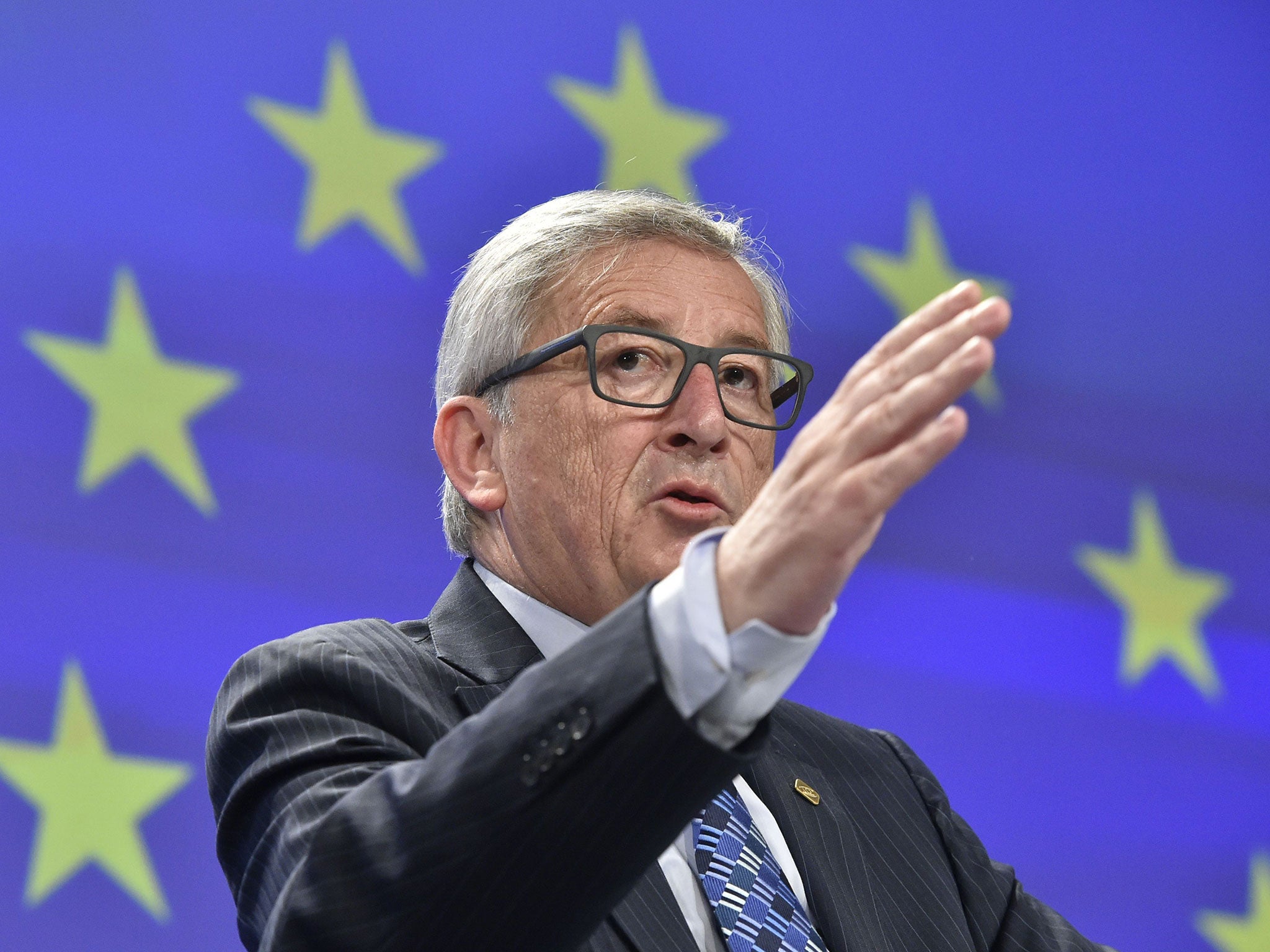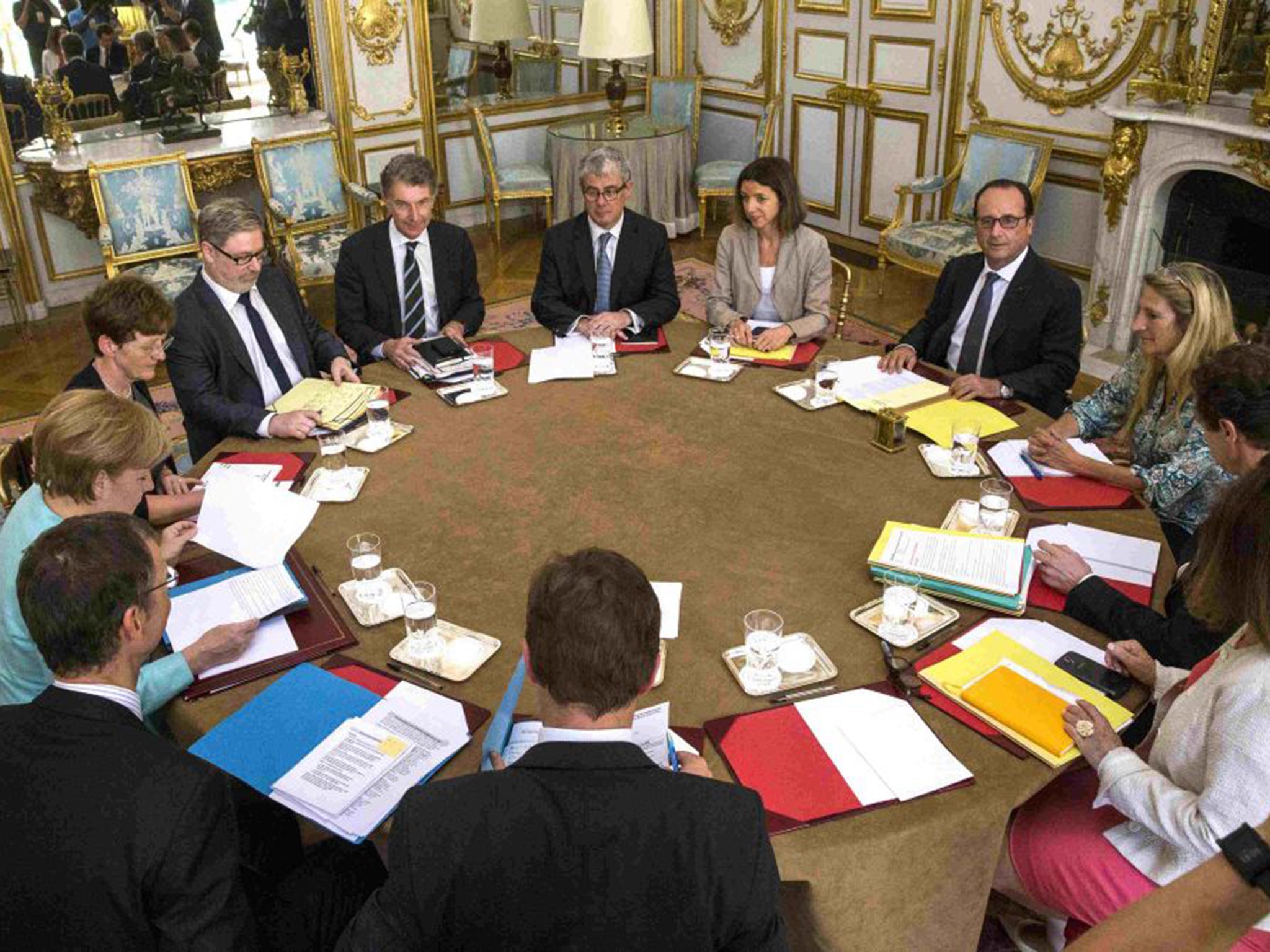Greece debt crisis: Trouble is, if you help the Greeks, everyone will want the same favours
The eurozone and European Commission are facing an impossible dilemma

When Jean-Claude Juncker put out a tersely worded statement after the Greek people ignored his plea to vote in favour of further austerity measures, he stressed that he would now consult “the democratically elected leaders” of the other 18 eurozone members.
The European Commission President’s remark was a pointed reminder to the Greek Prime Minister, Alexis Tsipras, that he was not the only one with an electorate to consider. Since his far-left Syriza party topped the Greek polls in January, Mr Tsipras has styled himself as the saviour of democracy from the very cradle of democracy, standing up to the tyranny of the unelected bureaucrats foisting ruinous austerity policies on struggling nations from their sleek offices in Brussels.
It is a canny message at a time when trust in the European Union and its institutions is dwindling across the 28-nation alliance, and it is telling that most of the gloating at the No vote came from Eurosceptics like Nigel Farage of Ukip and France’s far-right leader, Marine le Pen.
But polls consistently show that the majority of Greeks are pro-EU and want to remain in the single currency, leaving the eurozone and European Commission facing an impossible dilemma.

Caving in to Greek demands to write up a new bailout deal with softer conditions on billions of euros of loans is likely to embolden voters in other cash-strapped nations to turn to fringe parties, believing that the Greek débâcle proves that intransigence will eventually pay off. This fear is particularly acute among mainstream politicians in Spain, where Podemos – a left-wing party which shares Syriza’s outlook – is polling well ahead of elections in December.
Conceding to all Mr Tspiras’s demands would also betray the votes of people in other nations with a very different idea of how the EU should be managing its purse strings. Germany has its own electorate of thrifty voters, not keen on propping up what they see as tax-dodging southern Europeans. Ireland and Portugal have electorates who swallowed the EU’s austerity pill and don’t want to see another nation shirking its medicine.
However, if the eurozone leaders take the opposing path and stick to their demands for further cuts if Greece wants to stay in the euro, they will be seen to be ignoring the will of the Greek people – not good for burnishing the EU’s democratic credentials.
That path would also plunge the eurozone into unknown territory. There is no template for leaving the single currency, and it would be a logistical nightmare with some inevitable economic contagion as well as a prolonged depression and humanitarian crisis for Greece.

Then there is the ideology of the single currency. While in Britain the idea of ever-closer union sends a shudder down many politicians’ spines, in nations like Germany and France the euro is seen as a fundamental pillar of an alliance founded to bring peace and stability after the devastation of the Second World War. It is this symbolism of unity which Mr Tsipras may be banking on, says Josef Janning of the European Council on Foreign Relations.
“The EU and EU member states’ notion of cohesion and their idea of integration in Europe will mean that they could well come to the rescue should the humanitarian toll run high,” he wrote in a blog. “Tsipras seems to know this, and so is able to trust in this European reflex.”
So the most likely scenario is another round of what the EU does best: muddling through and returning to the negotiating table to try and find a palatable way out of a lose-lose situation.




Join our commenting forum
Join thought-provoking conversations, follow other Independent readers and see their replies